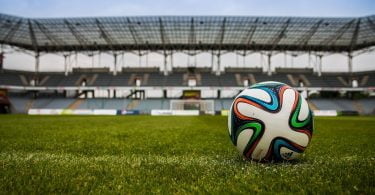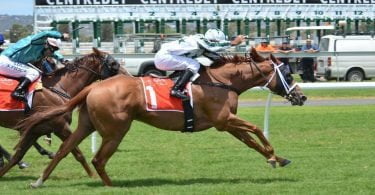With jetlag still besieging my tired eyes and woozy mind, the Grandmother of the family ushers me into her swanky, sheet-Black Lexus.
With jetlag still besieging my tired eyes and woozy mind, the Grandmother of the family ushers me into her swanky, sheet-Black Lexus. Clad in their pristine white combat robes, the oldest of the two boys I au pair is slumped in the front seat glowering at me; he doesn’t gravitate to strangers with immediacy it seems. The younger of the siblings sits in the back beside me, inquisitively eyeing my pale, alien frame. Further experience has taught me that the proclivity for sourness is hereditary for both brothers, but for now the interrogating juvenile can be placated with a none-too-taxing edition of ‘rock, paper, scissors’.
We depart the underground parking bay of the familial home to embark upon what is a manic vista of China. The undulating urban skyline, the emerald sea and the looming mountain range all cloud an already disorientated head space. Qingdao, a coastal metropolis in the West of China, materialises as a hybrid of a sprawling Manhattan fused with the imperfect finish of a Rio de Janeiro.
However closer inspection yields the discovery of far more flaws than first ascertained. The imperfect finish translates to rubble and dilapidation in forgotten pockets of the city; for sprawling metropolis read sporadic Consumerism which blesses some and mocks others. It’s only my inaugural morning in the world’s largest nation, but I have learnt quickly that behind the storied economic growth and technological boom lays an eye-opening spiel of far greater reach. With my brain a clutter with the problem of deciphering this most visceral of locations, I stumble across my first telling glimpse of sport in the Far East.
Taekwondo – only Kung Fu would have been more clichéd – is the chosen exploit of the surly twosome. My base knowledge of the practice could aptly be described as sparse to sod all, but I am aware opponents are tasked with kicking each other in all manner of ways. Despite this cluelessness, my thirst for sporting acumen dictates that I am eager to experience the kickfest; a truism only bolstered by my recollection of a London 2012 Olympic Gold for Team GB in this pursuit by the intrepid blonde, Jade Jones.
The dojo which hosts the training is looking greyed and a little wearied, but it’s serviceable. The stale air and scent of ingrained sweat only complement the sense of austerity, strictness and stoicism that lines the walls of the place. Although the scene is dour, the youths partaking total around thirty and many are members of my host family’s extravagant private school. Perhaps this crooked joint hardens the kids neglected by China’s economic rise, and irons out the gloating kinks of the moneyed youngsters. I settle to watch events unfold.
So far, so familiar. The gaggle of boys and girls proceed to lift their left leg onto a raised metal bar. Clearly the Chinese equivalent of stretching, I rationalise. All in keeping with the ethical guidelines of youth sports management; that is until the Taekwondo master and class leader, Qu Jin arrives.
At least twenty years the elder of the children, Qu Jin prowls along the line of fledging fighters probing for any fragility in their open stance. Seizing upon a gaffed stretch from one of his protégés, he yanks the leg of the child skyward and does his utmost to raise it to vertical. This process takes roughly ten seconds and is chequered by the squeals and yelps of the case in point. I look to my right at the parents of the abused; a wry smile dances on their lips. Stifling my disbelief I reason that in England, the master would have just served his final warm up. But this isn’t home.
Contrary to the dubious tone of this article thus far, I actually began to become enamoured to the Chinese methodology of organised sports. Once it dawned on me that all my preposterous preconceptions of systematic doping from age three or of children existing only to train were farcical, my cynicism began to falter. It was troublesome to maintain such negativity about the set-up when the infants were ostensibly savouring every second of the action.
The sanctions dished out by Qu Jin were little more than glorified pats, always delivered with an impish grin. The severe tones and expressions of the tutor were merely an affectation that amused and unnerved the class in equal measure. The ‘pats’ actually served a sound purpose: they regained attention, underlined erroneous technique and curbed any dalliances with misbehaviour. Having witnessed red-eyed volunteers infuriated by recalcitrant boys during my sporting forays, the function of the fear was understandable.
Furthermore, when the authoritarian mask of Qu Jin slipped, he readily tickled and tenderly tussled with the wee ones. Afterwards he was willing to pose, guard up, for a photo with myself. An affable character, perhaps a role model, was lurking behind the thorny exterior that dictated his taekwondo domain.
The training itself was indeed an endless cycle of heel kicks, front kicks and side swipes. Once more, the tutor’s vigil ensured that every technical glitch of the students was poured over, emphasised and then rectified. The repetitions comprised the majority of the session, with children as young as six tasked with the gruelling programme. That equated to two hours of drills and punishment with a meagre two minutes reserved for a drinks break. No stone was left unturned, no sweat unbroken.
Although the sight of callow children ran into the ground was a little too regimented for my palate, I had to admire the precision of their work. The combatant’s footwork, execution and professionalism were something to behold with every strike showcasing a pulse of energy emanating from the hips, cascading through the legs and flourishing in the points of their toes.
Also of note, the session both opened and culminated with a saluting of the flag; an action I’d never come across previously in the UK. With their right hand placed over their heart, a hush fell over the kicking brigade as they gazed reverently at the red insignia of China. A telling reminder of the nation’s Communist past, the gesture seemed to place the country above and beyond all, intimating commonality in what is a fractured nation.
Juxtaposed against my familiarity with UK youth sport, the dissimilarities became ever starker. The abiding memories of my local football set-up are characterised by a sensation of a social experience, one not dominated by the primacy of success or any particular value. Sheer enjoyment was the raison d’etre, a world apart from the pragmatism of the taekwondo lesson.
So in short, what did this encounter inform me about sport and culture in the Chinese heartland? My observation would be that there is a kernel of veracity at the centre of every stereotype. Of my experience so far hard graft, perseverance and discipline appear to be the bedrock of this thriving nation; a notion reflected in both organised sports and educational pursuits. Ever wondered why Chinese Olympians have perfected the poker face and are decidedly undemonstrative? I am willing to ledger a bet that those characteristics are indoctrinated in settings such as the dreary dojo, where men are masculinised and prima donnas extinguished.
This conclusion should not insinuate, for example, that the youth of France apply a particularly laissez-faire attitude to their sports undertakings, nor do the German’s of tomorrow abide by a ‘Vorsprung Durch Technik’ credo. Rather, my observations can only assert that youth sport does indeed have a founding impact on the shaping of the next generation.
So having tasted and comprehended a glimpse of the dynamics behind the teaching of Chinese Taekwondo, did I now favour it over Britain’s approach to sport of underachieving camaraderie which dyed my competitive upbringing? In no way, shape or form – but, I am after all, just another British softie.








